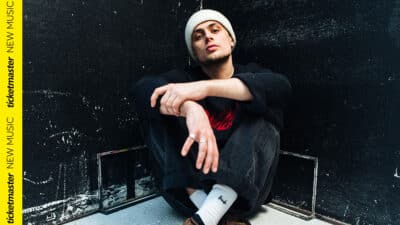Theatre
The Thing About Opera
Opera, it must be said, is a strange beast. Though falling ostensibly under the broader classical music umbrella, it really is a genre, indeed a unique artistic form, unto itself. This is not simply down to the fact that it relies so heavily on the human voice as opposed to instrumental forces, for there are plenty of choral and vocal works that fall squarely in the traditional (and not so traditional) classical music repertoire. It’s more that it is essentially a collaboration between disparate disciplines – music, theatre, literature, fashion, art, dance – that aims to be even greater than the sum of its many parts. A grand marriage of all artistic modes of expression which has the potential to plumb greater depths of emotion and storytelling than each on their own and should appeal to the widest variety of people given its cross-cultural reach.
It’s funny, then, that opera is generally considered the most archaic, impenetrable and alien of classical music forms to the modern-day music lover. Most people simply cannot relate to the sounds of all that warbling and the arch melodrama of its most famous librettos seem beyond quaint in a world in which post-modernism seems almost kitsch. The strident singing style for which the stereotypically rotund performers are infamous was developed simply in order to be heard: if you’re trying to sing over the sound of an entire orchestra and want to make sure the people at the back of an enormous hall can hear you, you really have to belt it out (hence the predilection for those singers of a larger-frame – bigger lungs/diaphragm means more power).
The result is a very specific and instantly recognisable technique for singing that is miles away from the intimate, laid-back and more intuitive style that can be achieved when one can sing into a microphone and not have to worry about projection. We have become so used to having songwriters purr directly into our ears as if they were singing straight from their own hearts into ours that the sheer force of your average opera belter is immediately more forceful, even intimidating. Given this, approaching opera for the uninitiated takes even more cultural re-calibration than for instrumental music. However, once the expectations and perspectives have appropriately shifted, there are true wonders there to be found.
As I have pointed out, what you get from opera is more of everything. You get all the transformative brilliance of classical music, but you also get great stories, from the telling of ancient dramas like Orpheus to modern political affairs such as when Nixon visited China to full-on pop-celebrity tales like Anna Nicole and Jerry Springer. You get the aesthetic joy of set and costume design, the visceral intimacy and drama of theatre, the lessons and insights of history, the giddy delights of choreography and dance; Once you get over the hump of unfamiliarity there really is something for everyone – a point I make in regards to classical music in general.
All that said, even I have my favourites and many operas, composers and even whole eras leave me somewhat cold (at least right now, my tastes are an ever-evolving journey). I always say that Opera Number 1 for newcomers is Carmen by Bizet. It’s got a nice dramatic story that’s easy to follow and is full of tunes that most people already know (which is actually hugely helpful). If you’ve never been to the opera before, Carmen is usually a good introduction.
I usually follow that up with the Mozart Operas – The Marriage of Figaro, The Magic Flute, Don Giovanni, etc – as they’re honestly kind of hard not to like (Mozart is perpetually mellifluous no matter what he’s writing). They are similarly full of great songs (arias in opera-speak), many of which people will already be familiar with, and have spoken bits (recitatives) in between to break up the warbling. They also have the sorts of silly, fun plots that, in their light-heartedness, can be easier to approach for modern audiences (you can also see where soap operas get their name).
After that it’s up to the individual where to go, from the romantic masters like Verdi and Puccini to more modern fare from John Adams or Philip Glass or even, if your constitution is up to it, the controversial grand master of the form himself, Richard Wagner. It’s definitely worth exploring though and for the price of a night out at the cinema and the pub you may as well give it a chance, you never know what you might discover.
To show the kinds of contrasts of tone and beauty you might find, here’s are just two examples of the breadth of experience opera can offer. First, one of my favourite arias that should whet your appetite. It’s a trio from Mozart’s Cosi Fan Tutte and is genuinely lovely on the ears, concerns the parlour japes of the aristocracy of old and showcases the archetypal classical style:
At the other end of the spectrum from the 20th Century, here is the devastating finale of Dialogues of the Carmelites by French composer Francis Poulenc. It is a dramatic enactment of the last days of the Reign of Terror in the French Revolution at the end of the 18th Century, when the Carmelite nuns were executed for not renouncing their vocation. As each approaches the guillotine, we hear the blade fall and each nun dies, the chorus reducing one by one until the last singer’s voice is cut off and the opera ends. This is art that rips your heart out and leaves you gasping:









